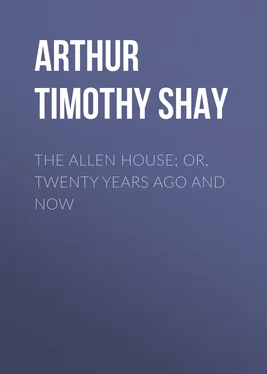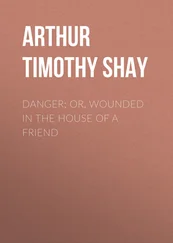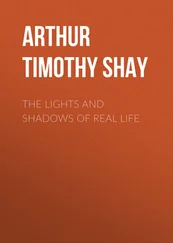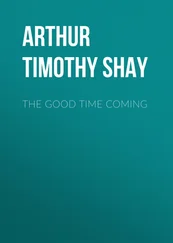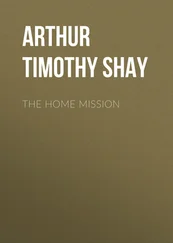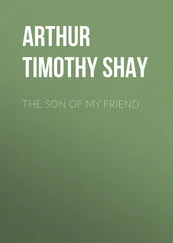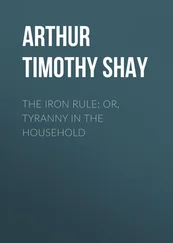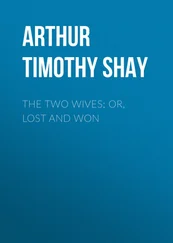Timothy Arthur - The Allen House; Or, Twenty Years Ago and Now
Здесь есть возможность читать онлайн «Timothy Arthur - The Allen House; Or, Twenty Years Ago and Now» — ознакомительный отрывок электронной книги совершенно бесплатно, а после прочтения отрывка купить полную версию. В некоторых случаях можно слушать аудио, скачать через торрент в формате fb2 и присутствует краткое содержание. Жанр: foreign_sf, literature_19, foreign_antique, foreign_prose, на английском языке. Описание произведения, (предисловие) а так же отзывы посетителей доступны на портале библиотеки ЛибКат.
- Название:The Allen House; Or, Twenty Years Ago and Now
- Автор:
- Жанр:
- Год:неизвестен
- ISBN:нет данных
- Рейтинг книги:3 / 5. Голосов: 1
-
Избранное:Добавить в избранное
- Отзывы:
-
Ваша оценка:
- 60
- 1
- 2
- 3
- 4
- 5
The Allen House; Or, Twenty Years Ago and Now: краткое содержание, описание и аннотация
Предлагаем к чтению аннотацию, описание, краткое содержание или предисловие (зависит от того, что написал сам автор книги «The Allen House; Or, Twenty Years Ago and Now»). Если вы не нашли необходимую информацию о книге — напишите в комментариях, мы постараемся отыскать её.
The Allen House; Or, Twenty Years Ago and Now — читать онлайн ознакомительный отрывок
Ниже представлен текст книги, разбитый по страницам. Система сохранения места последней прочитанной страницы, позволяет с удобством читать онлайн бесплатно книгу «The Allen House; Or, Twenty Years Ago and Now», без необходимости каждый раз заново искать на чём Вы остановились. Поставьте закладку, и сможете в любой момент перейти на страницу, на которой закончили чтение.
Интервал:
Закладка:
“You think so, Doctor?”
She looked at me with a hopeful light in her troubled countenance.
“I do, verily. So let your heart dwell in peace.”
I was anxious to get back to my good Constance, and so, after a few more encouraging words for Mrs. Wallingford, I tried the storm again, and went through its shivering gusts, to my own home. There had been no calls in my absence, and so the prospect looked fair for a quiet evening—just what I wanted; for the strange condition of Henry Wallingford, and the singular circumstance connected with the old Allen House, were things to be conned over with that second self, towards whom all thought turned and all interest converged as to a centre.
After exchanging wet outer garments and boots, for dressing gown and slippers; and darkness and storm for a pleasant fireside; my thoughts turned to the north-west chamber of the Allen House, and I said—
“I have seen something to-night that puzzled me.”
“What is that?” inquired my wife, turning her mild eyes upon me.
“You know the room in which old Captain Allen died?”
“Yes.”
“The chamber on the north-west corner, which, as far as we know, has been shut up ever since?”
“Yes, I remember your suspicion as to foul play on the part of Mrs. Allen, who, it is believed, has never visited the apartment since the Captain’s death.”
“Well, you will be surprised to hear that the shutters are unclosed, and lights burning in that chamber.”
“Now!”
“Yes—or at least half an hour ago.”
“That is remarkable.”
My wife looked puzzled.
“And more remarkable still—I saw shadows moving on the walls, as of two or three persons in the room.”
“Something unusual has happened,” said my wife.
“Perhaps Mrs. Allen is dead.”
This thought had not occurred to me. I turned it over for a few moments, and then remarked,
“Hardly probable—for, in that case, I would have been summoned. No; it strikes me that some strangers are in the house; for I am certain that I saw a young girl come to the window and press her face close up to one of the panes, as if trying to penetrate the darkness.
“Singular!” said my wife, as if speaking to herself. “Now, that explains, in part, something that I couldn’t just make out yesterday. I was late in getting home from Aunt Elder’s you know. Well, as I came in view of that old house, I thought I saw a girl standing by the gate. An appearance so unusual, caused me to strain my eyes to make out the figure, but the twilight had fallen too deeply. While I still looked, the form disappeared; but, through an opening in the shrubbery, I caught another glimpse of it, as it vanished in the portico. I was going to speak of the incident, but other matters pushed it, till now, from my thoughts when you were at home.”
“Then my eyes did not deceive me,” said I; “your story corroborates mine. There is a young lady in the Allen House. But who is she? That is the question.”
As we could not get beyond this question, we left the riddle for time to solve, and turned next to the singular state of mind into which young Henry Wallingford had fallen.
“Well,” said my wife, speaking with some emphasis, after I had told her of the case, “I never imagined that he cared so much for the girl!”
“What girl?” I inquired.
“Why, Delia Floyd—the silly fool! if I must speak so strongly.”
“Then he is really in love with Squire Floyd’s daughter?”
“It looks like it, if he’s taking on as his mother says,” answered my wife, with considerable feeling. “And Delia will rue the day she turned from as true a man as Henry Wallingford.”
“Bless me, Constance! you’ve got deeper into this matter, than either his mother or me. Who has been initiating you into the love secrets of S–?”
“This affair,” returned my wife, “has not passed into town talk, and will, I trust, be kept sacred by those who know the facts. I learned them from Mrs. Dean, the sister of Mrs. Floyd. The case stands thus: Henry is peculiar, shy, reserved, and rather silent. He goes but little into company, and has not the taking way with girls that renders some young men so popular. But his qualities are all of the sterling kind—such as wear well, and grow brighter with usage. For more than a year past, he has shown a decided preference for Delia Floyd, and she has encouraged his attentions. Indeed, so far as I can learn from Mrs. Dean, the heart of her niece was deeply interested. But a lover of higher pretensions came, dazzling her mind with a more brilliant future.”
“Who?” I inquired.
“That dashing young fellow from New York, Judge Bigelow’s nephew.”
“Not Ralph Dewey?”
“Yes.”
“Foolish girl, to throw away a man for such an effigy! It will be a dark day that sees her wedded to him. But I will not believe in the possibility of such an event.”
“Well, to go on with my story,” resumed Constance. “Last evening, seeing, I suppose, that a dangerous rival was intruding, Henry made suit for the hand of Delia, and was rejected.”
“I understand the case better now,” said I, speaking from a professional point of view.
“Poor young man! I did not suppose it was in him to love any woman after that fashion,” remarked Constance.
“Your men of reserved exterior have often great depths of feeling,” I remarked. “Usually women are not drawn towards them; because they are attracted most readily by what meets the eye. If they would look deeper, they would commit fewer mistakes, like that which Delia Floyd has just committed.”
CHAPTER VI
Delia Floyd was a girl of more than ordinary attractions, and it is not surprising that young Wallingford was drawn, fascinated, within the charmed circle of her influence. She was, by no means, the weak, vain, beautiful young woman, that the brief allusion I have made to her might naturally lead the reader to infer. I had possessed good opportunities for observing her, for our families were intimate, and she was frequently at our house. Her father had given her a good education—not showy; but of the solid kind. She was fond of books, and better read, I think, in the literature of the day, than any other young lady in S–. Her conversational powers were of a high order. Good sense, I had always given her credit for possessing; and I believed her capable of reading character correctly. She was the last one I should have regarded as being in danger of losing a heart to Ralph Dewey.
In person, Delia was rather below than above the middle stature. Her hair was of a dark brown, and so were her eyes—the latter large and liquid. Her complexion was fresh, almost ruddy, and her countenance animated, and quick to register every play of feeling.
In manner, she was exceedingly agreeable, and had the happy art of putting even strangers at ease. It was no matter of wonder to me, as I said before, that Henry Wallingford should fall in love with Delia Floyd. But I did wonder, most profoundly, when I became fully assured, that she had, for a mere flash man, such as Ralph Dewey seemed to me, turned herself away from Henry Wallingford.
But women are enigmas to most of us—I don’t include you, dear Constance!—and every now and then puzzle us by acts so strangely out of keeping with all that we had predicated of them, as to leave no explanation within our reach, save that of evil fascination, or temporary loss of reason. We see their feet often turning aside into ways that we know lead to wretchedness, and onward they move persistently, heeding neither the voice of love, warning, nor reproach. They hope all things, believe all things, trust all things, and make shipwreck on the breakers that all eyes but their own see leaping and foaming in their course. Yes, woman is truly an enigma!
Читать дальшеИнтервал:
Закладка:
Похожие книги на «The Allen House; Or, Twenty Years Ago and Now»
Представляем Вашему вниманию похожие книги на «The Allen House; Or, Twenty Years Ago and Now» списком для выбора. Мы отобрали схожую по названию и смыслу литературу в надежде предоставить читателям больше вариантов отыскать новые, интересные, ещё непрочитанные произведения.
Обсуждение, отзывы о книге «The Allen House; Or, Twenty Years Ago and Now» и просто собственные мнения читателей. Оставьте ваши комментарии, напишите, что Вы думаете о произведении, его смысле или главных героях. Укажите что конкретно понравилось, а что нет, и почему Вы так считаете.
